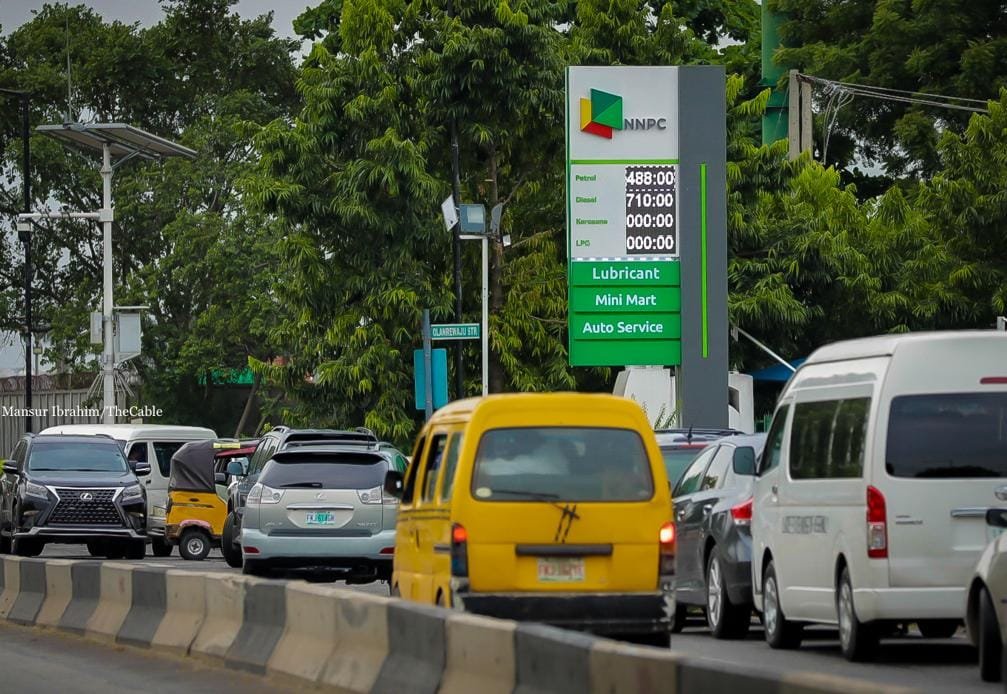Gom Mirian
Speculations of another increase in the pump price of fuel from ₦617 ($1.50) to ₦750 ($1.82) per liter has caused anxiety among many Nigerians, who said another increment will “be a nail in our coffin.”
The President Bola Tinubu administration had announced the removal of fuel subsidy on May 29, leading to a rise in pump prices from ₦198 to ₦540 in June and ₦617 in July.
Similarly, the implementation of the 7.5 per cent Value Added Tax (VAT) on Automotive Gas Oil (AGO), also known as diesel, has driven the price of the product up, with a liter going from ₦600 to between ₦900/ ₦950 per liter on Monday.
The multi-faceted effect of these hikes in the lives of Nigerians has been negative in many ways, especially as many rely on these products for transportation, as well as to power their businesses and homes.
Despite a Monday night denial of another hike and assurance by the retail arm of the Nigerian National Petroleum Corporation Limited (NNPCL) that there is no intention to increase petrol prices anytime soon, residents of the Federal Capital Territory (FCT) have expressed deep concern and worry about the potential impact on their daily lives and the economy.

Jane Madu, a middle-aged woman resident in Kubwa, when asked how another fuel hike would affect her, exclaimed: “Every price hike is a nail in our coffin. We are barely surviving, and a fuel price increase will only push us further into distress. The government needs to priorities the welfare of its citizens.”
Baba Usman Ibrahim, a taxi driver operating in Jabi, expressed deep concerns when Africa Health Report, AHR spoke to him about the rumored increase and how it could impact his livelihood.

“As taxi drivers, fuel is our lifeline. If the price goes up again, we will be left with no choice but to pass the burden onto our passengers. It’s a lose-lose situation for us and our customers,” he explained.
For Fatima Mohammed, a businesswoman residing in Wuse, what Nigerians need from President Tinubu’s administration are palliatives to mitigate the hardship brought on them by the abrupt removal of fuel subsidy.
“We appreciate the NNPCL’s assurances, but we need more than just words,” she stated, adding, “We need concrete actions that will ensure stable and affordable fuel prices. The government should take immediate steps to mitigate the impact of rising fuel costs on the people.”
Similarly, Mr. Ezekiel Adi, a civil servant residing in Lugbe, echoed the frustration shared by many, saying, “Our salaries remain unchanged, while the cost of essential commodities keeps skyrocketing.

“We depend on fuel to commute daily, and a third fuel price hike would unfairly burden ordinary Nigerians like me.”



